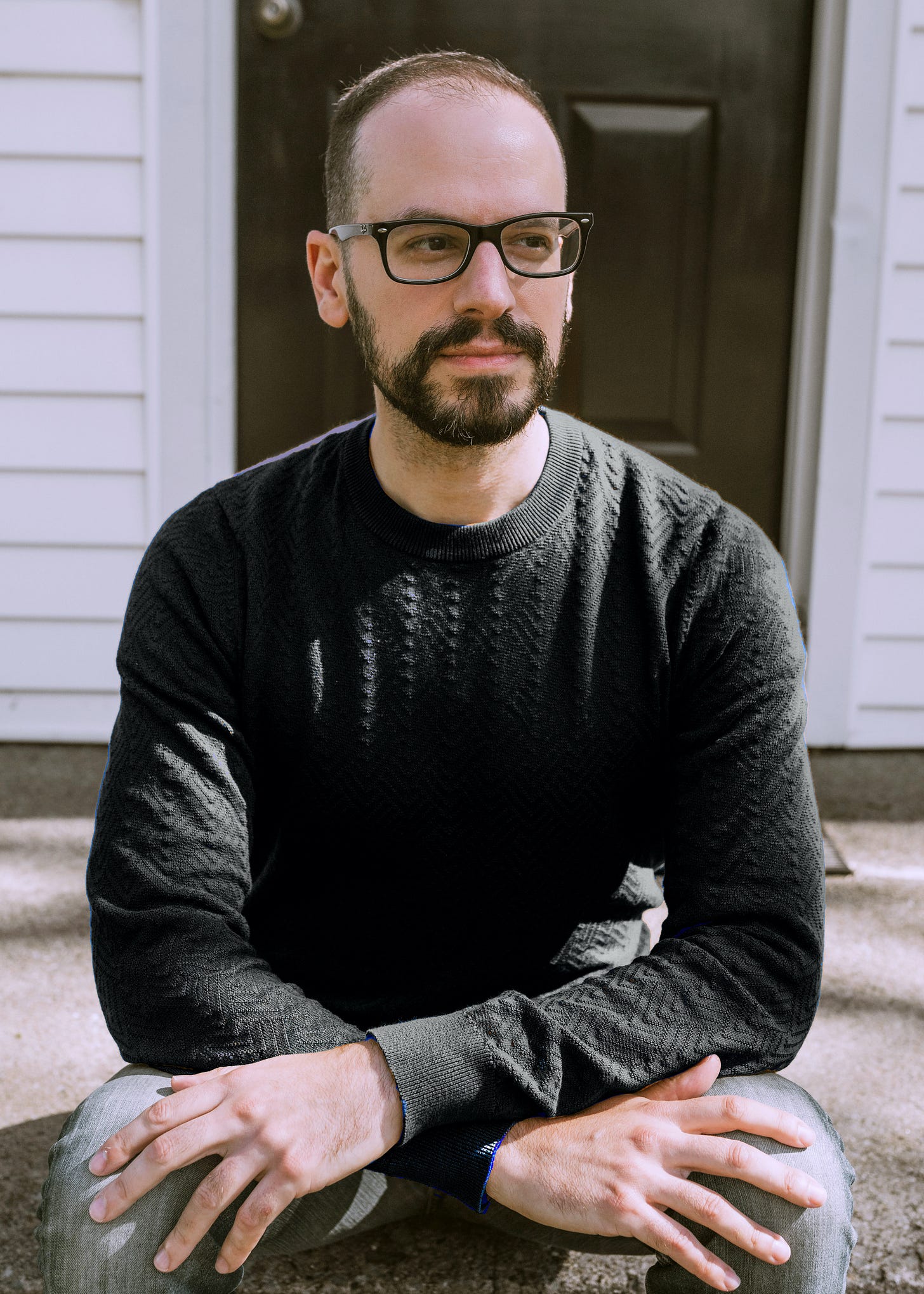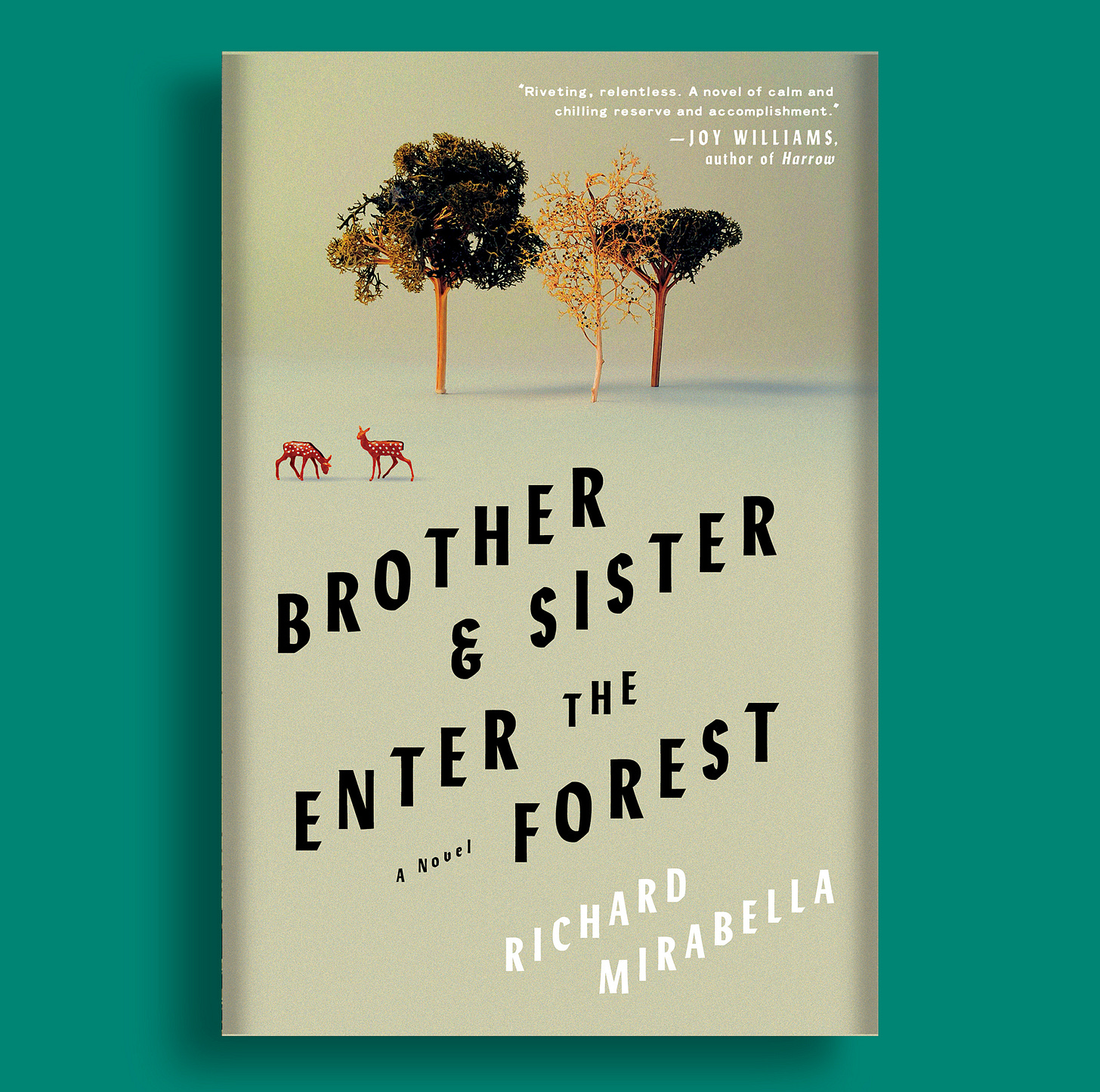Writing and Rushing
Novelist Richard Mirabella would like to remind you (and himself) to resist the pressure to finish your book in a flash.
I was on the phone with my mother. It was 2017 and I was mid-way through working on the secondish draft of my novel, Brother & Sister Enter the Forest, and we were having the same conversation we’d had over and over. How was it going? What was I doing, exactly, a few years into it? This time, my father piped up in the background.
“I don’t understand why he can’t just sit down and write the story from beginning to end! What’s taking so long?”
I didn’t understand, either. I was just as frustrated. I wanted to be at the end, too. But I rarely write in a straight line. I rarely know what’s going to happen, so I have to wait. This means I write in a slower way than I’d like: There’s no sitting down and writing it all out from beginning to end for me. I have to wait for the progression of events to reveal themselves to me, to wait to learn who the characters are, and sometimes that means waiting for a long time. Patience is a lesson I learned without really wanting to learn it. My novel took five years to write, revise, and edit.
There’s no sitting down and writing it all out from beginning to end for me. I have to wait for the progression of events to reveal themselves to me, to wait to learn who the characters are, and sometimes that means waiting for a long time. Patience is a lesson I learned without really wanting to learn it. My novel took five years to write, revise, and edit.
I think writing a novel, or maybe writing anything, is a war between two parts of the writer, which are both simultaneously detrimental and helpful: the patient, ethereal, understanding artist, who knows that projects of this magnitude take as long as they take and that the best surprises happen when you’re waiting and lingering in moments; and the impatient child, drumming their fingers on the table, bouncing their legs, needing to hurry, desperate to get to wherever it is we are all supposed to be going. The child, who is usually winning the war in my mind, wants what it wants right now. That is the strongest part of me. I like to be finished. Not nearly finished: that’s torture. I mean, give me a complete story in a meaty pile of pages.
Social media heightens the feeling that people are waiting for you. Maybe they aren’t, but it sure seems like they are—or that they’ve forgotten about you. Maybe they have. What if? What if they have forgotten about you while you close yourself in a room to write a novel for the next five years. Would it be so awful to be temporarily forgotten? I don’t know. I worry about this a lot. I’ve come to rely on social media for my writing community, and so it has become hard for me to disconnect and give my writing the time it needs.
I can only speak for myself, but I won’t forget you. I’ll wonder about you instead. This is easier said than done, but please don’t let social media—the attention you see other people’s work getting—keep you from taking care with your work, taking the time your work is calling for. This was hard for me during the writing of my novel. Seeing the book-deal announcements and cover reveals and good news. I was simultaneously happy for people and tortured because I was in the muck of writing. The only action that made me feel better was working on the book, going back to the writing. It was the only thing I had power over.
Social media heightens the feeling that people are waiting for you. Maybe they aren’t, but it sure seems like they are—or that they’ve forgotten about you. Maybe they have. What if? What if they have forgotten about you while you close yourself in a room to write a novel for the next five years. Would it be so awful to be temporarily forgotten?
Writers are obsessed with time, and especially with age! In my experience, that particularly applies to writers in their twenties and writers nearing forty. I was talking to a twenty-five-year-old writer who told me he felt old, that he was behind everyone else who was doing better. I could barely respond. He was talking to a forty-two-year-old about this, a forty-two-year-old who had been flailing and failing for most of his life. But this conversation—and others like it—-made me realize that it’s not writing, not accomplishing something with the actual writing, which causes this despair: it’s publishing.
Social media has caused a new pressure to be productive. Not only that, but to achieve, to publish, to have something to promote. So, it’s not really about artistic productivity, not really about making work you can be proud of, or discovering what you might have inside of yourself that you were unaware of. This kind of visibility doesn’t encourage creating a body of work. The demands of social media tell us that if we are quiet, we don’t exist. That’s terrifying. It makes me want to hurry up.
It naturally takes me a long time to form an opinion, make a decision, read a book, even eat. And I’m aware that there are people who can write novels in a matter of months. I’m not one of those people, and it kills me. I would love to be. Rushing, for me, only leads to frustration and anger, only leads to a story that could be better or more interesting if I’d given it time.
We are writing against the clock. Yeah, we’re doomed. But somehow, I promise, there is simultaneously no time and plenty. You will take your time and it will rush by anyway. You will go as fast as you can, which is impossibly slow. You will be thirty-five and then you will be forty-three and still tethered to this book you wanted to “dash off as quickly as you can!”
I was talking to my friend, who is a visual artist, extolling the virtues of taking your time, taking detours, having some patience, and when I was done, he breathed in and said: “But I’m going to die.”
So here is the other side of the coin: We are writing against the clock. Yeah, we’re doomed. But somehow, I promise, there is simultaneously no time and plenty. You will take your time and it will rush by anyway. You will go as fast as you can, which is impossibly slow. You will be thirty-five and then you will be forty-three and still tethered to this book you wanted to “dash off as quickly as you can!”
I wanted to write this because I needed a reminder. I don’t feel like I have any right to instruct anyone. People should write the way they want to, for the reasons they want, at the pace they want, but I like recommending. So, I’m recommending that you should be kinder to yourself, especially when you feel other people seem to be faster, or when an agent reaches out and you aren’t ready. You’re not going to rush a good novel out of yourself. A draft can emerge rather quickly, but a draft is the beginning. People will still remember you while you do the rest of the work.
I hate making pronouncements about writing as if they are the rule, but I feel comfortable saying that writing is improved by patience. Setting aside time for thought—for life—enriches the work. Writing is patience. Imagine breaking it down into its parts. What does it require? A letter, another letter, another, a word, a space, a string, a moment, a scene. All of it built up and up over seconds, minutes, hours, days, actual years. Imagine organizing the world in this way, creating time and weather, histories and meals, sex lives, bodies that work or do not. All of this is up to you, to me. I will take my time because it’s what comes naturally to me. Going against it is folly.







Hey Richard,
thanks for that insight.
I can see those two parts and my childish part is not only impatient, it is stubborn too. Which leads to frustration or just not writing at all.
But now I can see a way through that.
With patience,
Diana
Finally, at 86, when I know I am going to die, what gives me energy is the process in every single piece of writing. A reason to get up, a reason to wake in the middle of the night, thinking, So that's what she's doing! To see that I have a living project that maybe I'll live to finish. Or maybe I won't.